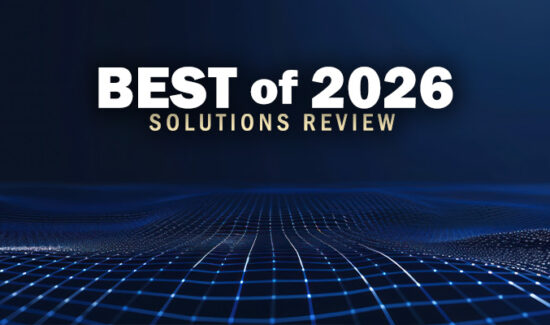Integrated Platforms Put Unified B2B Commerce Within Reach for Fast-Moving Consumer Goods Distributors


Travis Rothstein, the senior manager of Acquisition Sales and Integrations at Advantive, explains how integrated platforms can bring unified B2B commerce to fast-moving consumer goods (FMCG) distributors. This article originally appeared in Insight Jam, an enterprise IT community that enables human conversation on AI.
 Unified B2B commerce has hit a roadblock in the fast-moving consumer goods (FMCG) sector. Despite significant technological advancements, many FMCG distributors struggle to integrate the customer-facing and back-office systems that power their operations. Without system interoperability, organizations face a disconnect that leads to siloed data, inconsistent customer experiences, and limited flexibility in responding to shifting market demands.
Unified B2B commerce has hit a roadblock in the fast-moving consumer goods (FMCG) sector. Despite significant technological advancements, many FMCG distributors struggle to integrate the customer-facing and back-office systems that power their operations. Without system interoperability, organizations face a disconnect that leads to siloed data, inconsistent customer experiences, and limited flexibility in responding to shifting market demands.
Companies are well aware of these challenges and the need to facilitate easy data exchanges between all stakeholders to achieve unified commerce. In their active efforts to solve the issues, 80 percent of B2B organizations are pursuing ways to connect their eCommerce platforms with modern enterprise resource planning (ERP) systems. When successfully integrated, those systems can streamline operations so that FMCG businesses can scale, adapt, and deliver exceptional customer value.
The Value of Data in B2B E-Commerce Cannot be Overstated
Data is the backbone of every B2B e-commerce system, and FMCG businesses handle large amounts of it, including customer orders, supply chain details, product catalogs, sales analytics, and financial transactions. Without centralizing all that data to enable standardization and accessibility, organizations cannot achieve operational efficiency.
Centralizing company data within unified systems improves accuracy and consistency and offers a deeper understanding of business processes. Quality data allows businesses to identify potential errors early before they lead to significant problems. FMCG distributors that standardize key data points across sales, inventory, and finance can gain crucial operational visibility and a clear picture of both daily functions and long-term growth opportunities.
For example, if a distributor receives a surge of similar datasets from multiple sources and they all vary in format, each set might contain identical or overlapping bits of information. However, the slightly different formats and files can create differentiation issues, requiring companies to allocate more resources to manage datasets that are essential to their business. When formats are standardized across the board, distributors can more easily ingest, distinguish, and transact on large-scale data.
This strategy saves both time and money. Research by McKinsey & Company found that organizations that embraced the approach lowered the total cost of data ownership by as much as 30 percent.
Benefits of B2B E-Commerce Platforms Include Real-Time Insights and Better Accessibility
Modern B2B e-commerce platforms are built to meet FMCG distributors’ diverse needs when it comes to data management. These systems address the unique challenges faced by various stakeholders, including sales representatives, retail buyers, and customer service teams, while supporting companies’ efforts to grow and succeed in high-pressure markets.
One of the most significant advantages e-commerce platforms offer is the ability to bridge the gap between front-end customer interactions and back-end operational systems. Innovative solutions that consolidate omnichannel sales into a single platform provide a streamlined approach to keep companies organized and competitive. Businesses can more easily ensure a consistent buyer experience across online and offline channels thanks to the real-time insights they get on buying trends, promotions, and sell-through performance. In addition, simplified sales management lets sales representatives secure deals on the go with mobile CRM access.
B2B e-commerce platforms can also integrate with on-premise and cloud-based ERP systems, providing instant access to vital data regardless of team members’ locations. With flexible features like online product availability and offline route accounting, field sales representatives with mobile devices have direct insight into inventory and customer order history. Plus, stakeholders can make better data-driven decisions since inventory sync helps businesses avoid overselling or understocking, which are common and costly pitfalls in distribution. At $1.77 trillion, the cost of inventory distortion is a growing global issue. Between 2022 and 2023, out-of-stocks increased 17.7 percent in North America alone.
ERP and CRM Integration Supports the Seamless Exchange of Data
ERP and CRM integration are non-negotiable to truly enable unified B2B commerce. Both systems are central to managing sales, inventory, customer interactions, and financial data. When integrated with eCommerce platforms, they create a cohesive network that enhances visibility across all areas of business. Most B2B e-commerce solutions now include built-in ERP and CRM integrations, acting as the connective tissue that ensures automatic, real-time updates across all systems and defines the flow of data on products, customers, receivables, and more.
Configurability is a key factor in making these integrations effective. With configurable plugins, companies can tailor scheduled synchronizations to automate certain processes that don’t require frequent changes. Businesses value the flexibility to align integration with their unique workflows and operational priorities.
Gains in speed and accuracy are equally important. The automated flow of information between systems means companies can eliminate manual data entry and reduce the risk of human error. Sales transactions, for example, are instantly recorded in ERP systems, helping inventory, finance, and customer service teams stay on the same page and respond quickly to changing demands. Improved operational agility also enhances timely order fulfillment and communication, leading to higher customer satisfaction.
No longer a future goal, unified B2B commerce has become a present-day differentiator for FMCG businesses aiming to stay ahead. When ERP, CRM, and e-commerce systems work together, companies get the agility and insight to deliver consistent value and customer satisfaction, even as consumer demands evolve.
Adaptability is everything in fast-paced industries, and organizations that invest in seamless, integrated systems are most favorably positioned for success. With measurable gains like increased revenue and stronger customer loyalty to be made, the case for unified commerce is undeniable. Moving beyond disconnected tools and legacy systems in favor of integration will be the difference between merely keeping up and leading the way forward.


















